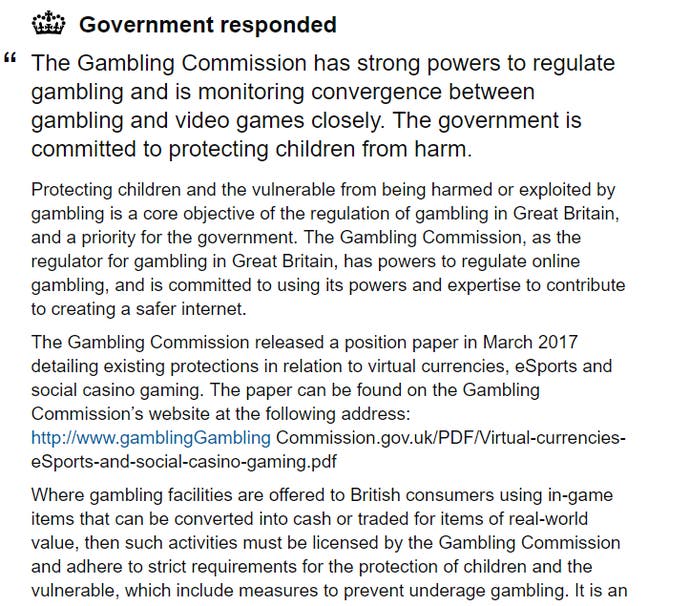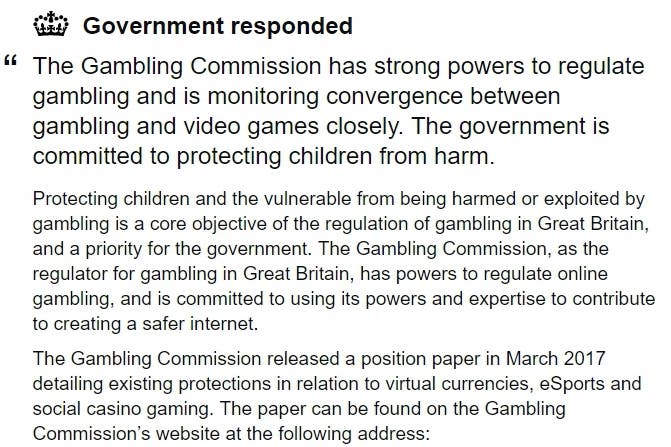The government finally responds to gambling in video games petition
And the response isn't as bad as we expected.
The UK government has finally responded to a petition calling for gambling laws to be adapted to include video games with gambling mechanics that target children - and the answer isn't as bad as you might have thought.

The petition, titled "Adapt gambling laws to include gambling in video games which targets [sic] children", was filed earlier this month and quickly reached the 10,000 signatures needed to trigger a government response.
Though it has taken nearly three weeks for the response to arrive, and the response contains much we've already reported elsewhere, there are a few interesting takeaways, including a government assurance that the Video Standards Commission (VSC) rating board is working with PEGI "to determine whether any changes to the PEGI criteria need to be made".
"The Video Standards Council (VSC) rating board is the designated body for classifying video games, and applies the Europe-wide PEGI ratings to video games supplied in the UK," reads the government response.
"The PEGI criteria currently make provision for games depicting simulations of traditional gambling, and such games would generally attract a minimum PEGI rating of 12. The VSC Rating Board is discussing these issues with the PEGI Council and its Experts Group to determine whether any changes to the PEGI criteria need to be made."
Meanwhile, as the petition particularly addressed the issue of video game gambling that targets children, the government said the Gambling Commission has asked the Responsible Gambling Strategy Board "to examine the wider relationship between children and gambling".
Here's another interesting note from the response:
"Consumers are also protected by the Consumer Protection from Unfair Trading Regulations 2008. This includes a requirement on businesses not to subject anyone to misleading or aggressive marketing practices, or, for example, direct exhortation to buy products, such as games content, including in-game purchases such as loot boxes. The government is committed to ensuring that consumers are properly protected and that children's vulnerability and inexperience is not exploited by aggressive commercial practices."
The government also pointed to the Young People and Gambling Survey, which included specific questions in relation to esports and video gaming. It's due to deliver its results soon.
This government response makes no promises, but the wording is a step forward from the government's prior non-committal response to questions asked by an MP about video game gambling.
The upshot, however, is the Gambling Commission currently does not consider loot boxes to be gambling because the items obtained from them cannot be exchanged for real-life money: "Where prizes are successfully restricted for use solely within the game, such in-game features would not be licensable gambling."
But as we've reported, when it comes to games such as FIFA 18, you can most definitely cash out.
The full government response can be found here.


